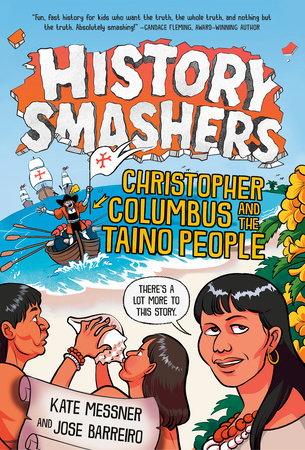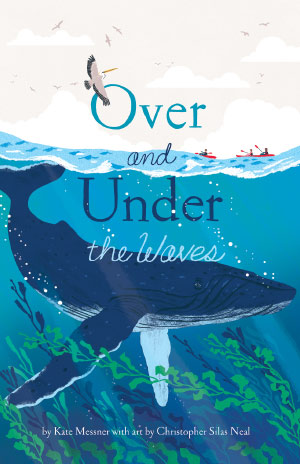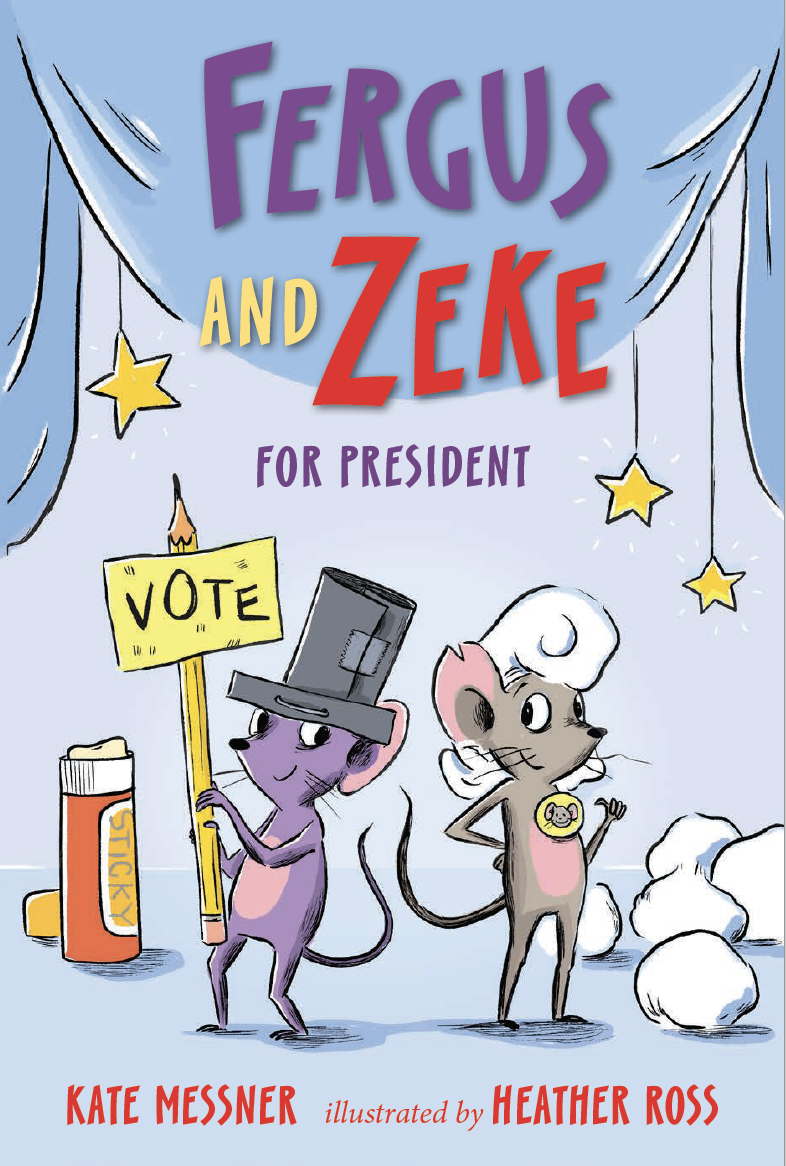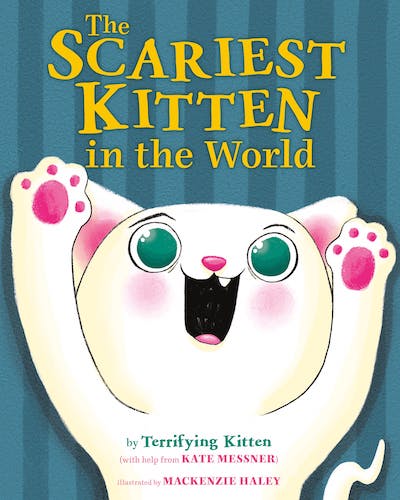Good morning! Got questions about writing?
It’s Q&A Wednesday on Teachers Write, and today’s official guest author is Hannah Barnaby!


Other folks may stop by to answer questions as well, so feel free to ask things that are Hannah-specific as well as general questions. Hannah & I will be checking the comments today to share answers!





Good morning Hannah and thanks for letting us pick your brain. What process do you use in deciding if an idea is worth pursuing into turning it into a book? And what do you do if you are in the middle of writing a book and one of those exciting ideas comes along? Thanks.
Hi, Martha! Happy to be here!
I fully expect shiny new ideas to come along while I’m writing a book, especially during the “second act slog” (aka the mushy middle). I never turn an idea away at the door, but I can’t draft two books at the same time so I stick to making notes on the new idea. Character sketches, rough outlines, ideas about what the conflict could be, etc. That way, I’m not trying to inhabit two different fictional worlds at the same time but I’m not in danger of forgetting the idea that came along and knocked.
As for deciding if an idea is worth pursuing: I never really know until I start writing! I’ll often end up combining a few different ideas to round out a novel draft; for picture books, I just try writing the story from various angles until I find a good way in. The idea is just the beginning. It’s the narrative choices you make — point of view, characterization, setting, etc. — that make a story unique!
Hi Hannah! Thank you for sharing your time and experience with us. I was wondering if you have any techniques you might share for focusing on writing, rather than on the ‘Squirrel!’ impulses that shoot me (at least) around the internet. (It’s really bad at the moment, so I’d be grateful for any tips!)
Hi, Terry! Yes, this is certainly a tough time for staying focused, isn’t it? Frittering away my time on social media is a definite weakness of mine, and as it happens, I just read a reflection on Joseph Campbell’s concept of “the bliss station.” (I, um, found it on Facebook.) Campbell advises us to find a space (either temporal or physical) that is protected from outside distractions. He puts it this way: “You must have a room, or a certain hour or so a day, where you don’t know what was in the newspapers that morning, you don’t know who your friends are, you don’t know what you owe anybody, you don’t know what anybody owes to you. This is a place where you can simply experience and bring forth what you are and what you might be. This is the place of creative incubation. At first you may find that nothing happens there. But if you have a sacred place and use it, something eventually will happen.”
Of course, this is often easier said than done. Many of my writer friends have a ritual that marks the beginning of their creative time: a cup of tea, a scented candle, a song that draws them into the world of their story. I think it’s a lot like meditation: start with 5 minutes and work your way up to more. Turn off your phone (or at least put it on the other side of the room), disconnect from the internet, let your mind wander but keep it within the boundaries of the story you’re writing. It takes practice, but you can get there.
Quick tip: a pen and notebook are never connected to the internet!
There are also programs like “Freedom” and “Antisocial” that you can put on your computer. I resorted to that and they really help. I will set them for 2 or three hours blocks. Because NO discipline.
Okay, Hannah, this quote has just made my day. Except that I’m still on the internet. But I love at least thinking about that place! Soon I’ll get there.
Envisioning the space is a good start! (Also, I like to visit HomeGoods every now and then and treat myself to some pretty office supplies as a reward for reaching a writing goal.)
I have two questions and thank you in advamce for your input. 1. In my manuscript my MC is a science fiction fan and makes several references to Star Wars and Dr. Who. Is this legit in copyright law? I feel like I will really be losing something if I have to edit them out. 2. In places my characters communicate via Facebook messenger, but this has already become out dated because my students rarely use facebook. How do you recommend creating contemporary fiction that is not quickly outdated? Thanks again!
Elizabeth, great questions. Passing references to books, movies, etc. are fine, legally speaking, as long as you are simply mentioning them by title or character names. It gets trickier when you want to use excerpts or song lyrics, for which you need permission (and that can get expensive). I think it’s also important, though, to ask yourself how you’re using the references in your narrative. Are they shortcuts to characterization? Are they helping set your story in a particular place and time? Are you relying on these references too heavily?
Cultural references and the inclusion of technology like Facebook messenger are fraught for us as contemporary fiction writers because — as you point out — they get outdated almost immediately. And remember that it could be two years after you sign your book contract that the book actually gets published, which makes it nearly impossible to keep those references current. One solution is to create a fictional stand-in for an actual device or app, something you’ve made up but that your readers will recognize as indicating the real thing. Something like Twitbook. (But not that. That’s terrible.) Readers will quickly accept that as part of the world you’ve built for the story, and it spares you the agony of trying to figure out what the latest popular app is at every stage of revision.
Thank you so much for taking the time to answer my questions.
I just ordered Some of the Parts for our 7-8th grade library so thank you! My WIP is a MG piece and I’m working on pace with my editing. How do you deal with keeping a well paced plot going, especially in draft form? Thanks for coming to camp today!
Hi, Kate! Thanks so much for sharing SOTP with your students! I hope you put Kleenex on the school supply list. 😉
My drafting process is primarily about figuring out the characters, how they relate to each other, what they want and don’t want, etc. It’s only after I’ve gotten through a draft and answered those questions that I know them well enough to gauge what the plot should look like. Because the plot has so much to do with the motivations of the characters and the decisions they make, the reactions they have when things happen, and how they operate in their relationships.
Once I have a “finished” first draft, I can revise with plot and pacing in mind. This process involves writing a lot of notes in the margins that say things like, “Something needs to happen in this chapter.” And then brainstorming about the possibilities, discarding the most obvious/least interesting, and writing forward from there.
Thank you, Hannah! I feel like a surgeon going back and adding/subtracting and reconfiguring. Writing is definitely not a straight line. I appreciate your insight and feel validated. I question each chapter/paragraph/sentence to monitor whether it moves the story forward and is enticing to read. I’m going back to shorten chapters and vary settings to spice up the pace.
I tell my students (of all ages) that every scene needs to deepen character, move the story forward, or both. Good for you for already asking yourself whether you’re accomplishing that!
Hannah, thank you for sharing your expertise with us today. I haven’t read your book, but just read the summary on Amazon and ordered it. My question for you is, when writing about real issues, like organ donation or date rape, how do you present your subject without sounding “preachy”. These are hot button issues that some see as all or none propositions. How do you present the gray area? The confusion associated with it? I guess I will see, when I have the chance to read your book, but how did you approach it in your drafting? I’m struggling with my WIP because I want to be able to play the gray, if you catch my meaning. I think it is really important in this case as we transition from a “No, means no” culture to a “Only yes, means yes” culture. I hope this makes some sense to you. I have really struggled with this this summer. Thanks in advance.
Hi, Susan! I think the best way to avoid “preachy” is to make sure that everything that’s happening in your story is arising out of and connecting back to your main character(s). There is definite potential for writing paralysis if we approach a story with our message in hand; by focusing on developing fully-realized characters (who sometimes make decisions and say things that we wouldn’t), we allow our stories to develop beyond the framework of *what they’re about*. It’s important for our protagonists to have flaws, to make misguided choices, and to arrive at their own conclusions about the world they live in. Our characters are not us, and especially when we’re writing from the point of view of a much younger person, we must set aside so many of our own experiences to allow for their own to unfold.
Thanks, Hannah. That is helpful.
My friend Kristen-Paige Madonia says that she makes sure every character has something in common with her, so she can relate to them, and some quality entirely unlike her, so she doesn’t end up writing about herself all the time. I’ve repeated this advice to many writers…including myself!
Hi, Hannah!
Thank you for your time. I love the answer to the social media distractions that pull us away from our writing – as you can tell, I am currently experiencing this dilemma. I have two questions for you:
Question #1: Over the last few weeks, there have been many posts about perspective and point of view. How do you determine first or third person in your own writing?
Question #2: Does your characters develop as you write the story or are the characters developed in the prewriting stage?
Thank you again.
Hi, Andy! I’m going to answer your second question first, if that’s okay. I do engage in quite a bit of prewriting (and I love that term, because it sounds so much better than “daydreaming” or “eating candy on the couch”), and I ask myself questions about who the characters are, about their goals and talents and flaws, about their families and where they live and how they feel about both. This gives me the confidence to start writing a story — but I nearly always reach a point where I find that I was seriously off-base in some way. And then I have to ask new questions. And so it goes. I learn new things about my characters all throughout the first draft, and beyond. The trick for me is to continue writing forward, carrying that new knowledge, and not letting myself turn back to “fix” everything before I’ve gotten a finished draft in place.
As for point of view, I find that the story often leads me towards one or the other. My first novel, WONDER SHOW, is written in third person, past tense, largely because it’s historical fiction and that felt like the most authentic voice. But I found that I was having trouble connecting with the supporting cast in the novel, the performers in the traveling sideshow that the main character encounters after she’s run away from her evil custodian. So I started writing first person monologues from the perspectives of those characters, and eventually my editor and I decided to keep them in the finished book. My second novel, SOME OF THE PARTS, is first person, present tense, which suits the story because the main character is on a quest with an uncertain outcome and I found that writing in present tense raised the dramatic tension and made her emotions more vivid and immediate.
Now close that browser window and get back to work!
Hi Hannah,
I was thinking about writing a book about my students that I have had in the different schools i have taught in, but fiction version. I was thinking maybe each chapter I would highlight one student and their life. I would obviously be adding to and using some true details but different names and locations and such… do you think this would be an interesting book to anyone? Is there any tips that you can tell me about writing something like that?
thank you!
Hi, Jennifer! I think this sounds like a really interesting project, and the first question I’d ask is: what unifies the stories? Is there a recurring theme or a pattern you see when you list the stories you’d adapt for the book? Any successful anthology or collection of linked stories needs to have this kind of connectivity to give the book a sense of structure.
I also wonder: why fiction? Why not write the book as a memoir of your own experiences with the students? It’s a very different proposition, of course, and you’d need to have the students’ permission (unless you changed their names). But if you have powerful stories to share, some of that power can get lost in the process of translating them into fiction.
If you are with yourself about what you want to say to readers through these stories, I believe the right medium will reveal itself. Good luck!
Sorry, that was supposed to say “clear with yourself”!
Well I was thinking that it should be fiction because there would be no way some of the parents would approve this, let alone me actually find them to do that.
I was thinking maybe basing it on a classroom, and having the teacher create a story about her students in her classroom and highlighting each student?
i am not totally sure.